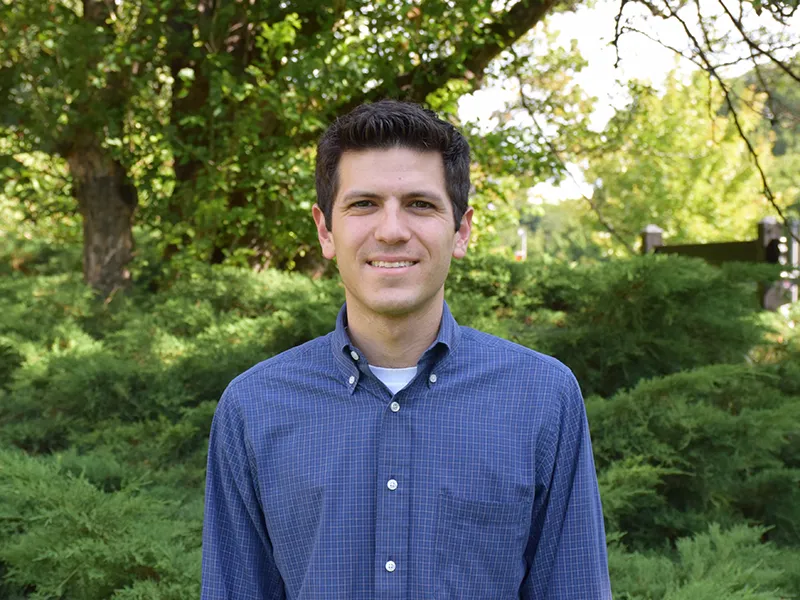
It’s no secret that corporations have an outsized influence on American politics, but the ways in which they wield power can be difficult to untangle. In his research on climate and clean energy policymaking at the state level, School of Liberal Arts Assistant Professor Joshua Basseches seeks to understand the hand that businesses, specifically investor-owned utilities (IOUs), have in shaping the laws that affect the future of our planet. His recent findings, published in the peer-reviewed journal Politics & Society, are key to understanding business power and the challenges to equitable climate policymaking going forward.
The research article, titled “Who Pays for Environmental Policy? Business Power and the Design of State-Level Climate Policies,” focuses on three state climate leaders — California, Massachusetts, and Oregon — and policies that cap greenhouse gasses and transition a percentage of electricity usage to renewable energy sources. Through examination and analysis of policy texts, archival documents, and over a hundred policy-focused interviews, Basseches found that while design and implementation varied, the power of IOUs in influencing these policies was indisputable. IOUs, for example, successfully lobbied for provisions that shifted the costs and risks associated with clean energy onto electricity consumers — and away from the utilities themselves.
“In thinking about climate policy particularly,” Basseches writes, “it is important not only to assess policy design in terms of environmental strength but also in terms of who pays; that is, how are the short-term costs of the transition to a clean energy economy distributed among stakeholders?”
Basseches is the David and Jane Flowerree Assistant Professor of Environmental Studies and Public Policy, a professorship created within the School of Liberal Arts to address the climate crisis, and a joint appointment designed to reinforce the environmental studies program through its connection with social sciences. Research for the Politics & Society article is a piece of a longer book Basseches is writing, one that involves research in seven states in total. The additional states are Republican-led, and all seven vary in energy production levels, particularly the production of fossil fuels. With this diverse range of states, Basseches explains, “the book will be able to tease apart the importance of utilities’ preferences relative to other factors, like political partisanship and energy economy.”
“I’ve always been interested in how public policy is made — who gets a seat at the table and who doesn’t, and how seats at the table are used.” Central to the future of climate policy design is understanding who influences those decisions, and why. “When it comes to shaping electricity policy, investor-owned utilities are the single most influential type of interest group,” Basseches explains. “My research lends important insights into what is important to them politically and economically, and how they might be re-approached to be better partners in the clean energy transition.”

